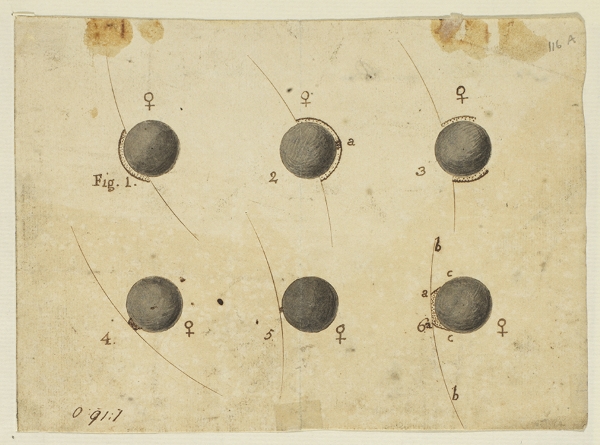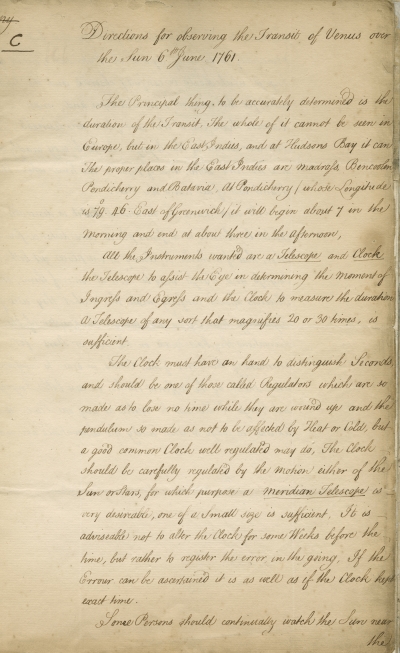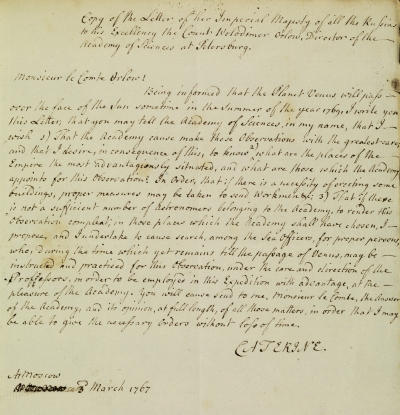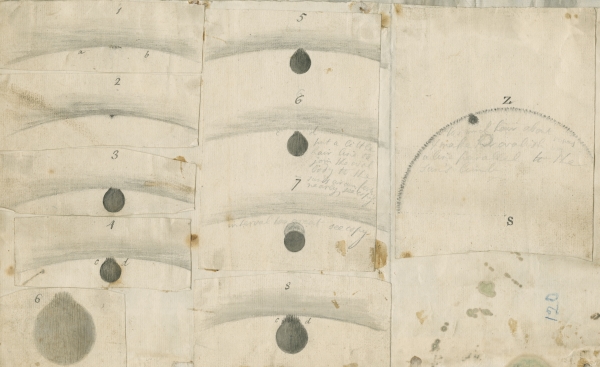Read more about the principle of terra nullius, the idea of land being unclaimed and available for the taking, and how this became key to British colonialism.

Earlier this year, I had a class on settler colonialism in Australia as part of my Master’s degree. One article on the reading list by Stuart Banner looked at the principle of terra nullius – the idea of land being unclaimed and available for the taking – and how this became key to British colonialism in the region.
I was struck by the discussion of the role of Lieutenant James Cook in this. As you’ll probably know, Cook commanded the brig Endeavour and set off to Tahiti in 1768 to observe the transit of Venus. The Royal Society’s preferred officer-in-charge, Alexander Dalrymple (1737-1808; FRS 1771), was swiftly vetoed by the Admiralty: the Society was obliged to provide Cook with a gratuity from the Crown’s expedition funding to act as a part-time observer, with the expedition astronomer Charles Green (1734-1771). Meanwhile, the Admiralty gave Cook sealed orders instructing him to look for suspected yet ‘undiscovered’ land, which led him to the east coast of what later became known as Australia and as far as New Zealand. I found particularly interesting the relationship between the motivations of an imperial government and journeys of scientific discovery and geographic exploration.
Although probably the most famous instance, Cook’s journey wasn’t the first time that astronomers had gathered en masse to view a transit, and it wouldn’t be the last. The pair of transits occurring in the 1760s were keenly anticipated as they could provide data for calculations of the distance of the Earth from the Sun, and subsequently the dimensions of the entire solar system. The need for vast networks of observers mean that transits provide a solid case study for looking at astronomy and empire.

Directions for observing the transit of Venus, by the East India Company, 1760 (MM/10/106)
In 1716, Edmond Halley noted that the next transits of Venus would take place in 1761 and 1769, urging astronomers to observe them as the next pair would not occur for more than a hundred years. There was, then, much excitement leading up to 1761. The importance of a global network of astronomers for the work is shown in a 1760 letter from the Directors of the East India Company – grown, by this point, from a trading organisation to a military force holding dominion over parts of India – stating that ‘the whole of it [the transit] cannot be seen in Europe, but in the East Indies, and at Hudsons Bay it can.’ Unfortunately, the results of observations of the 1761 transit were not completely accurate, and astronomers looked forward to the transit of 3 June 1769.

'The illumination of part of the outer limb of Venus when it was partly on the Sun’s disc during its transit’ by Torbern Olof Bergman, 1761 (MS/131/120A)
The pressure was on to observe the transit from as many locations as possible, with a 1768 memorial from the Royal Society to King George III highlighting some of the key issues. It aims to convince the monarch to help fund the expedition to Tahiti, and states that observation of the phenomenon will ‘contribute greatly to the improvement of Astronomy, on which Navigation so much depends’. The level of collaboration needed, as well as some imperial competition, is alluded to here:
‘several of the great Powers in Europe, particularly the French, Spaniards, Danes and Swedes are making the proper dispositions for the Observation thereof; and the Empress of Russia has given directions for having the same Observed in many different places of Her extensive Dominions.’
As well as stating that the next transit would not be for over a century, the note appeals to the patriotism of the King:
‘the British Nation have been justly celebrated in the learned world for their knowledge of Astronomy, in which they are inferior to no Nation upon Earth, Ancient or Modern; and it would cast dishonour upon them should they neglect to have correct Observations made of this important Phenomenon.’
We can see here how science, navigation and imperial pride are easily connected. Scientific discovery had always been closely related to the ability to travel and ‘discover’ new lands, specimens and peoples. In this case, the ability to travel was critical to obtaining the best results. What was not critical for the observation of the transit of Venus, however, was an investigation of the lands and peoples in and around the South Pacific. In his article, Banner argues that the government secretly told Cook to make his way south once he had finished with the observation, to try and find a land which was known to exist but had not been explored or charted. The transit of Venus was the perfect opportunity to explore land poorly understood by Europeans, with a view to acquiring it for the British Crown.
Interestingly though, Cook reported back that the land he found was hardly populated at all, and this sparked a debate on whether or not the land should be deemed to be inhabited. The number of people present, as well as criticism of their perceived inability to cultivate the land, and other racially-based analyses, eventually led to the policy of terra nullius – the idea that this land did not belong to the indigenous people, and so could be taken without payment.

‘The illumination of part of the outer limb of Venus when it was partly on the Sun’s disc during its transit’ by Torbern Olof Bergman, 1761 (MS/131/120A)
A translated letter from Catherine the Great of Russia to the Director of the Academy of Sciences at St Petersburg (L&P/5/1, shown above) further shows the importance of observing the 1769 transit of Venus not just to the British Empire, but indeed to any state which considered itself a world power. The Czarina asks the Academy to ‘make these Observations with the greatest care’ and offers workmen to construct the necessary buildings. She also suggests that if there were not enough astronomers available at the Academy, naval officers could be trained up to observe the transit.
The notion of scientific discovery was, in the minds of seventeenth, eighteenth and nineteenth century European scientists, conceived of very similarly to other types of discovery, and might be closely tied to the aims and activities of empire. There were, nevertheless, dissenting voices. The then-President of the Royal Society, the Earl of Morton, issued firm advice to Cook and his expedition: ‘no European nation has a right to occupy any part of their country or settle among them without their voluntary consent. Conquest over such people can give no just title, because they could never be the aggressors.’ History may prove to be on Morton’s side.

‘Ingress of Venus during the 1769 solar transit’ by William Hirst (L&P/5/120/2)







